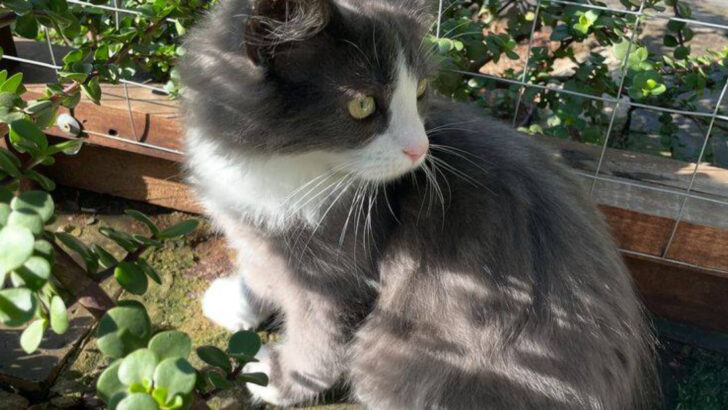Cats are curious creatures, drawn to various scents that can make your yard an irresistible playground for them. Whether you’re a cat enthusiast looking to invite feline friends or simply enjoy watching these graceful animals, knowing which scents attract them can be beneficial. From aromatic herbs to floral fragrances, each scent has its own unique allure that can beckon a cat’s attention. Here, we delve into the world of aromas that can turn your backyard into a cat haven, offering you twelve enticing scents that cats simply cannot resist.
Catnip
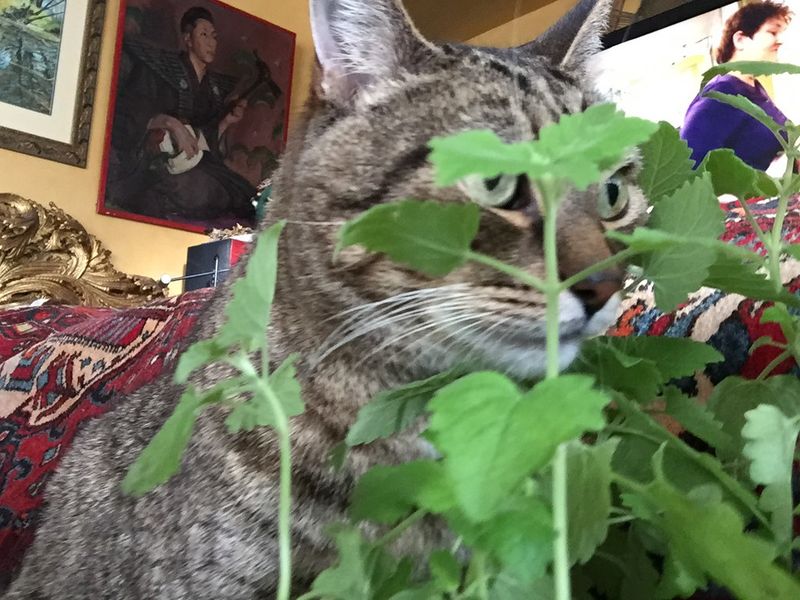
Catnip is like magic for cats, captivating them with its stimulating effects. The scent of this herb can send cats into a frenzy of excitement. You’ll find them rolling, purring, and rubbing against the plant with sheer delight.
Grown widely in gardens, catnip’s appeal lies in nepetalactone, an essential oil found in its leaves. While not every cat responds, those that do are enchanted as if by a spell.
This plant is easy to cultivate and can thrive in various climates, ensuring that your yard remains a cat-friendly zone all year round.
Valerian Root
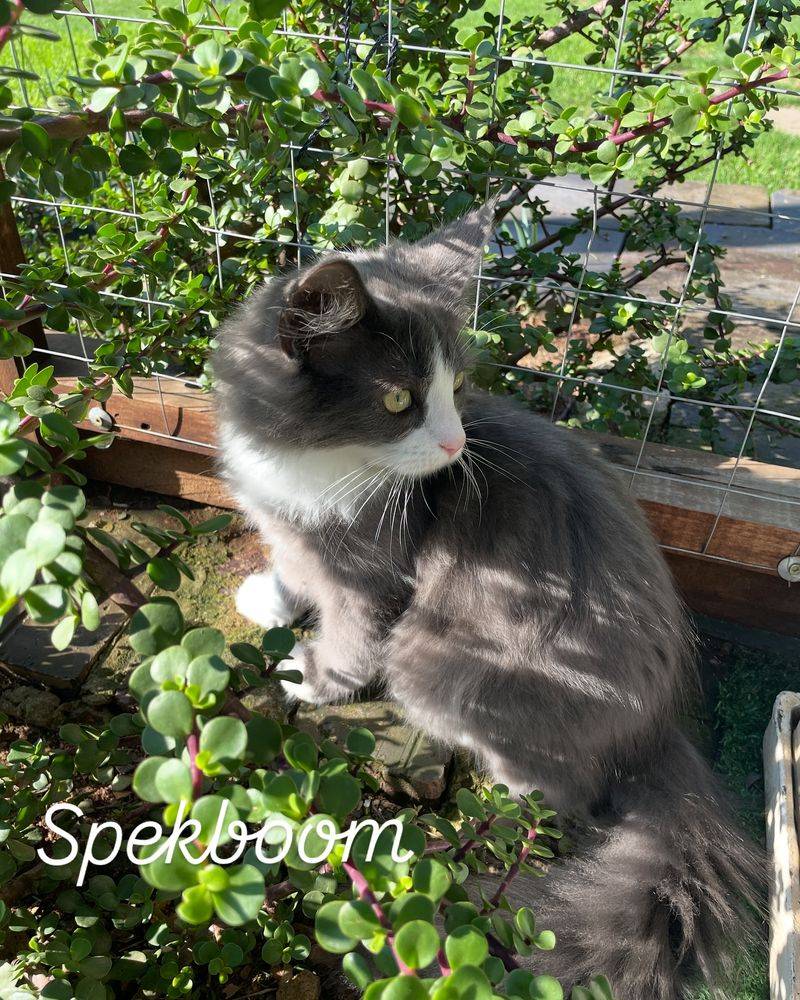
Valerian root, though known for calming humans, has the opposite effect on cats. This root’s pungent aroma is irresistible to many felines, encouraging playful behavior.
The roots release a musky scent that attracts cats, much like catnip. This often leads to enthusiastic frolicking and a burst of energy.
An interesting historical tidbit: ancient Egyptians used valerian to attract and bond with cats, cementing their status as revered companions. A few plants of valerian in your backyard could transform it into a feline playground, full of energy and joy.
Silver Vine
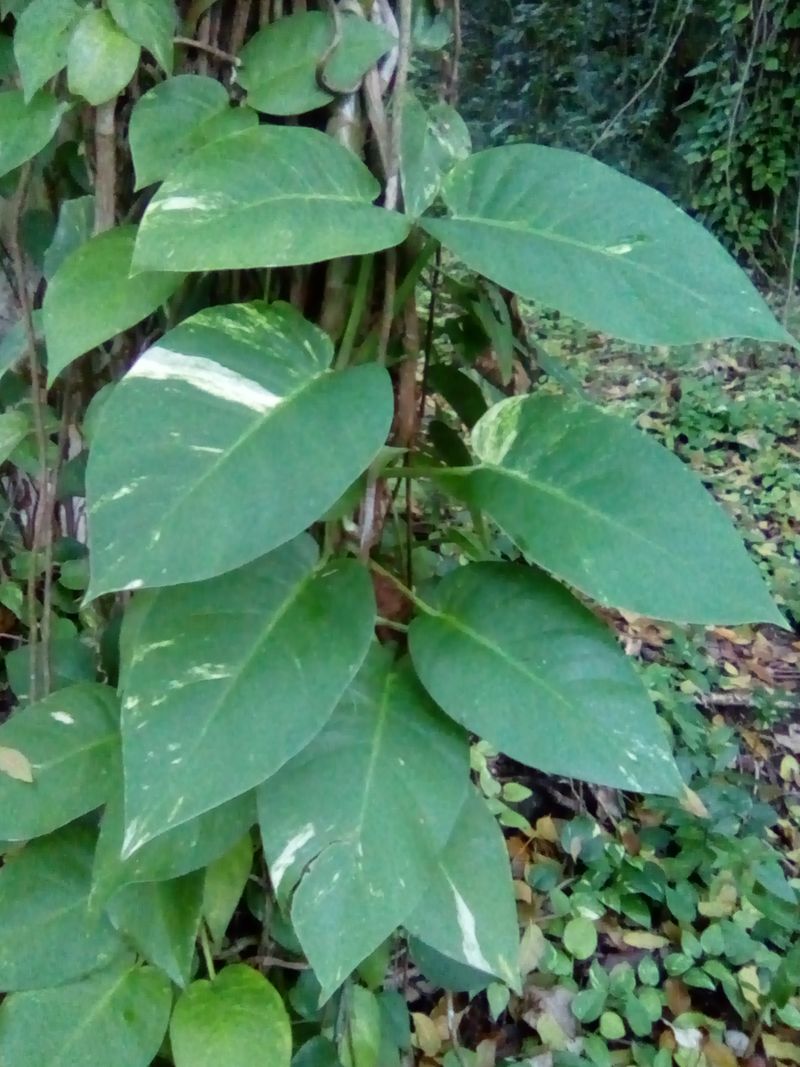
Silver vine, a plant native to Asia, captivates cats with its unique blend of scents. More potent than catnip, it provokes an even stronger reaction.
Cats are drawn to its leaves and fruits, often displaying euphoric behavior as they interact with the plant. It’s like nature’s toy, providing endless entertainment.
This plant’s ability to attract cats is well-documented, offering a natural way to engage with our feline friends. Its robust growth and adaptability make it a wonderful addition to a yard seeking to charm every cat that passes by.
Lavender
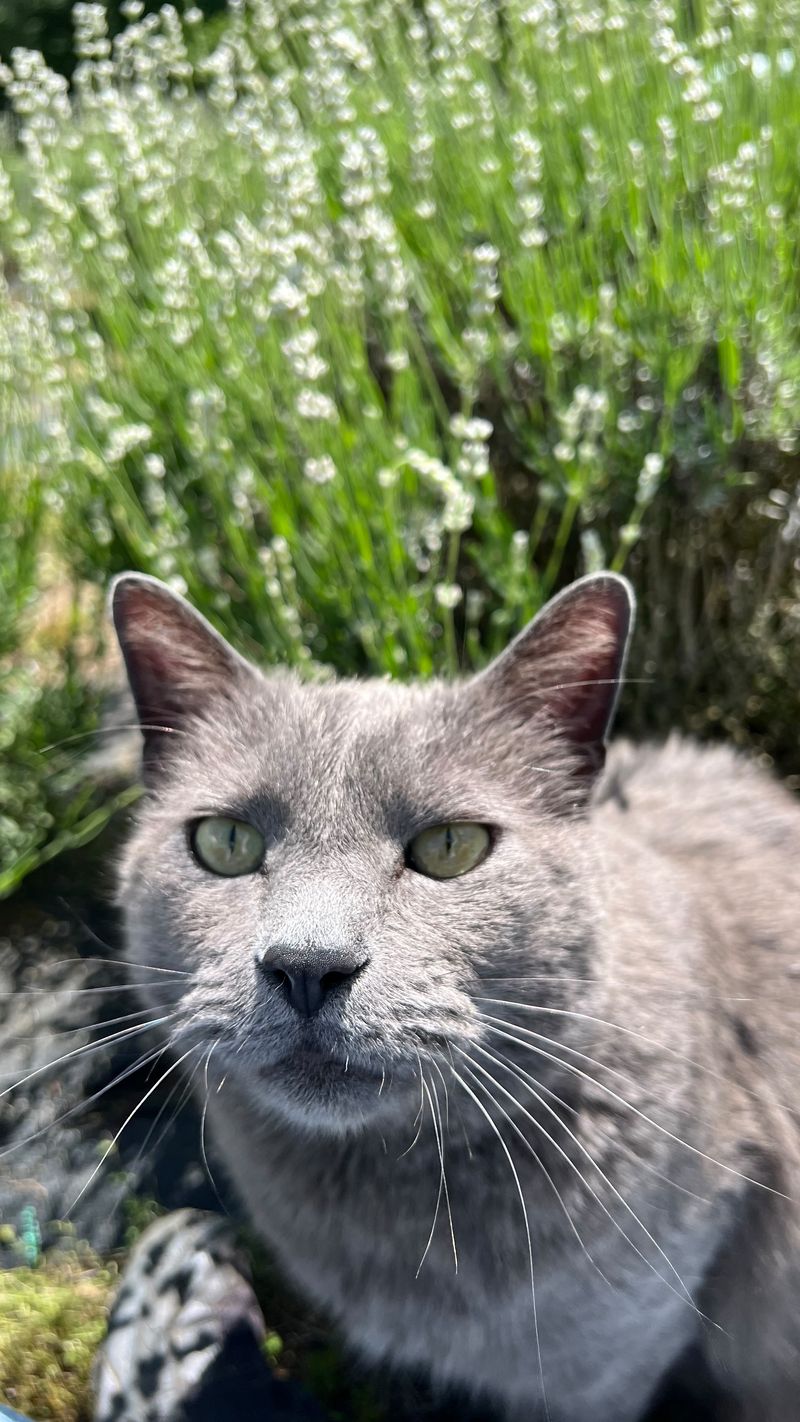
Lavender, with its soothing fragrance, is not just for humans. Cats find this scent appealing, and it can have a calming effect on them.
While not as intensely stimulating as catnip, the gentle aroma of lavender attracts cats, encouraging them to lounge and relax. The soft, aromatic breeze creates a serene environment.
Planting lavender in your garden not only adds beauty but also serves as a tranquil haven for visiting cats. Its perennial nature ensures that its calming presence is available throughout the year.
Mint

Mint, with its refreshing scent, captures the curiosity of cats. This perennial herb, known for its vibrant green foliage, is a delightful addition to any garden.
Cats often find the aroma of mint intriguing, prompting them to investigate and play among the leaves. It’s a sensory experience that can lead to playful antics.
Besides its appeal to cats, mint is also a versatile herb for culinary uses, making it both a practical and enticing choice for garden enthusiasts who love having feline visitors.
Basil

Basil, a common culinary herb, is surprisingly attractive to cats, thanks to its subtle aroma. The sweet scent of basil can lure cats into a garden, inviting them to lounge in its shade.
While it doesn’t incite the same frenzy as catnip, it does create a relaxing ambiance that many cats appreciate. This makes basil an excellent choice for a cat-friendly yard.
In addition to its aromatic allure, basil is easy to grow and adds a fresh, flavorful touch to dishes, enhancing both garden aesthetics and culinary experiences.
Thyme

Thyme, with its earthy fragrance, appeals to cats in a subtle yet persistent way. Its scent is inviting and can draw cats to your garden, where they might linger and explore.
Unlike more overpowering scents, thyme offers a gentle allure that encourages a relaxed, mellow mood among cats. It’s a plant that invites tranquility.
This herb is not only attractive to felines but is also a valuable addition to any cook’s garden. Its dual role as a culinary herb and cat attractant makes it a practical, multi-purpose choice.
Lemongrass

Lemongrass, with its citrusy aroma, is adored by cats. This tropical plant’s scent is both refreshing and invigorating, drawing cats in with its lively fragrance.
Many cats enjoy rubbing against its tall stalks, finding the aroma stimulating and pleasant. This interaction often leads to playful behavior and a joyous demeanor.
Lemongrass is not only attractive to cats but also useful in cooking, especially in Asian cuisine. Its presence in your garden can thus serve dual purposes, delighting cats and cooks alike.
Honeysuckle
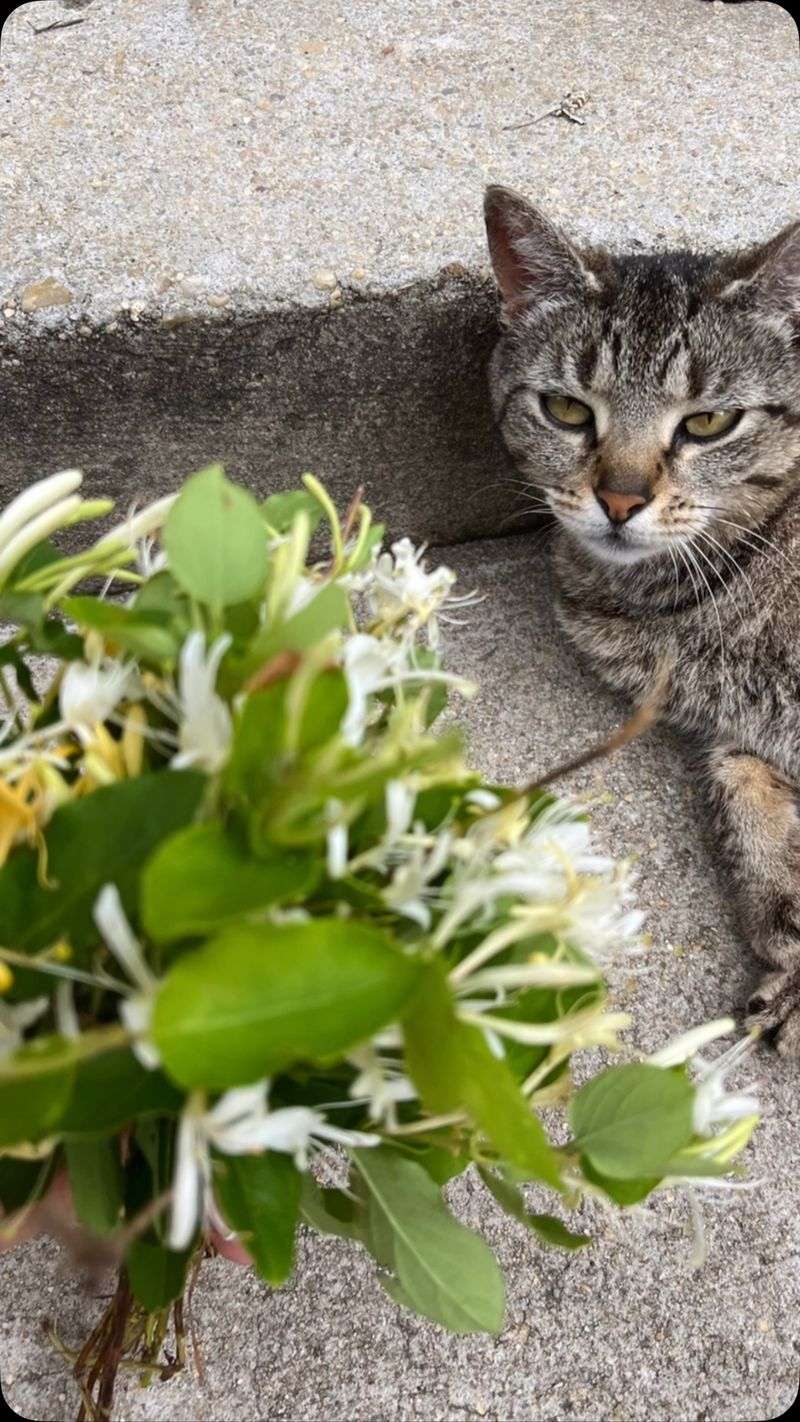
Honeysuckle, known for its sweet fragrance, is a favorite among cats. The scent of its flowers can entice cats to explore, leading to playful engagement with their surroundings.
Cats are particularly drawn to the aroma of honeysuckle wood, which has a similar effect to catnip. This makes it a popular choice for feline treats and toys.
Cultivating honeysuckle in your garden adds a touch of beauty and fragrance while also creating an inviting space for cats to discover and enjoy their natural playful instincts.
Dill
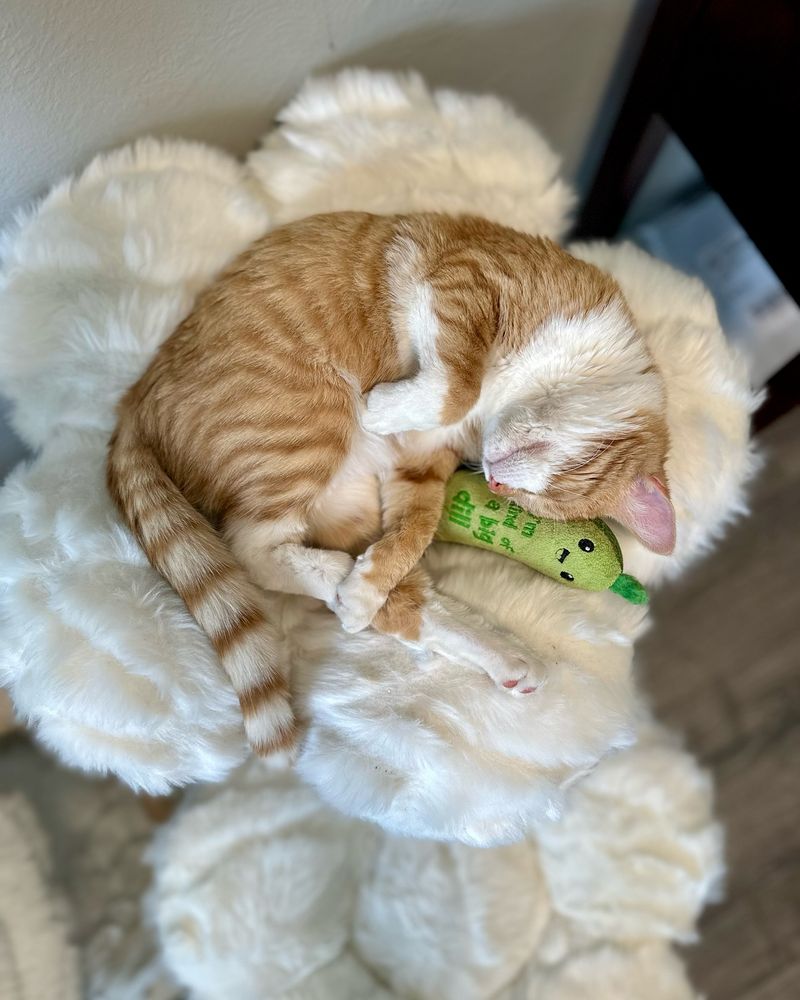
Dill, with its feathery leaves and distinctive scent, piques the interest of many cats. This aromatic herb is known for its fresh, herbaceous aroma that cats find intriguing.
The scent encourages them to sniff and frolic among the plants, adding a lively energy to your garden. Dill is both a culinary delight and a feline attractant.
Planting dill not only enhances your garden’s appeal to cats but also offers a flavorful addition to your kitchen, perfect for seasoning a variety of dishes.
Chamomile
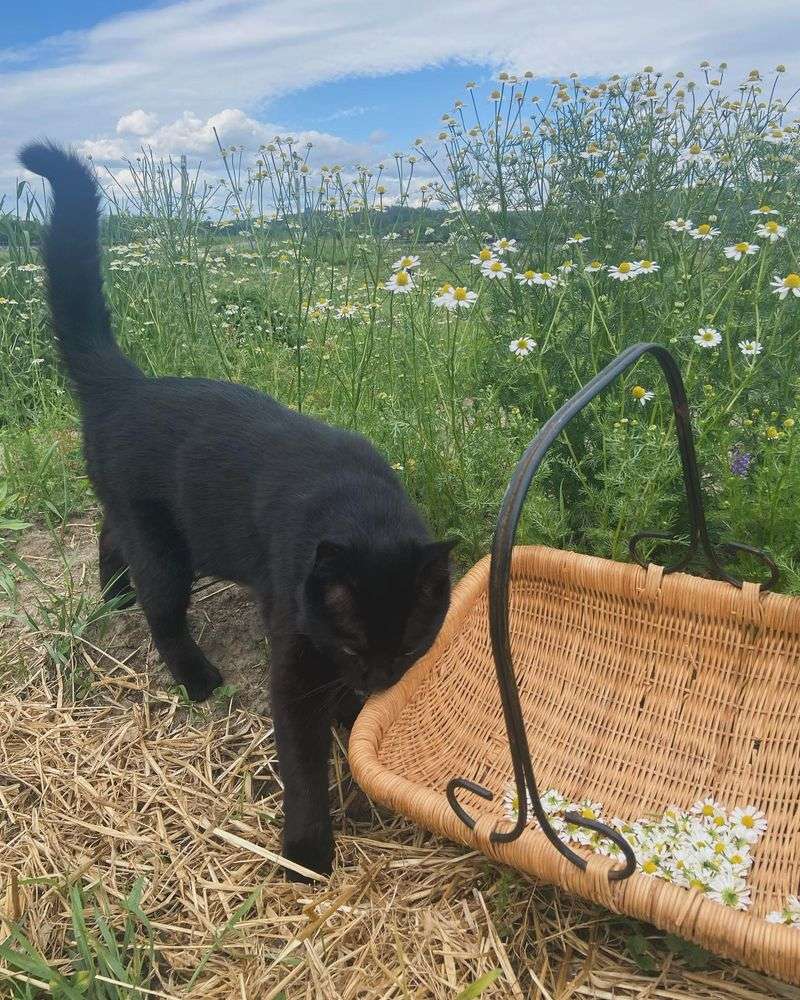
Chamomile, often associated with relaxation in humans, has a similar calming effect on cats. The gentle, apple-like scent of chamomile can lure cats into a garden, where they might rest and unwind.
Cats are often seen lounging among the chamomile blooms, basking in the tranquil environment it creates. This herb’s soothing properties make it a wonderful choice for a cat-friendly garden.
Additionally, chamomile can be harvested for tea, providing a calming beverage for humans while also serving as a natural attractant for feline visitors.
Roses

Roses, with their timeless beauty and captivating scent, attract more than just human admirers. Cats are often drawn to the sweet fragrance of rose petals, exploring the garden with curiosity.
The scent of roses can invite cats to linger, basking in the sensory delight the flowers provide. It’s a gentle allure that many cats find irresistible.
Beyond their appeal to felines, roses add a touch of elegance to any garden. Their lovely blooms and aromatic presence make them a favorite among garden enthusiasts and cats alike.

